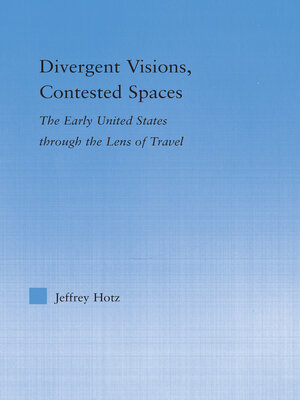Divergent Visions, Contested Spaces
ebook ∣ The Early United States through Lens of Travel · Literary Criticism and Cultural Theory
By Jeffrey Hotz

Sign up to save your library
With an OverDrive account, you can save your favorite libraries for at-a-glance information about availability. Find out more about OverDrive accounts.
Find this title in Libby, the library reading app by OverDrive.



Search for a digital library with this title
Title found at these libraries:
| Library Name | Distance |
|---|---|
| Loading... |
This multicultural project examines fictional and non-fictional accounts of travel in the Early Republic and antebellum periods. Connecting literary representations of geographic spaces within and outside of U.S. borders to evolving definitions of national American identity, the book explores divergent visions of contested spaces. Through an examination of depictions of the land and travel in fiction and non-fiction, the study uncovers the spatial and legal conceptions of national identity. The study argues that imagined geographies in American literature dramatize a linguistic contest among dominant and marginal voices.
Blending interpretations of canonical authors, such as James Fenimore Cooper, Frederick Douglass, Richard Henry Dana, Jr., and Herman Melville, with readings of less well -known writers like Gilbert Imlay, Elizabeth House Trist, Sauk Chief Black Hawk, William Grimes, and Moses Roper, the book interprets diverse authors' impressions of significant spaces migrations. The movements and regions covered include the Anglo-American migration to the Trans-Appalachian Valley after the Revolutionary War; the 1803 Louisiana Purchase and Anglo-American travel west of the Mississippi; the Underground Railroad as depicted in the fugitive slave narrative and novel; and the extension of American interests in maritime endeavors off the California coast and in the South Pacific.







